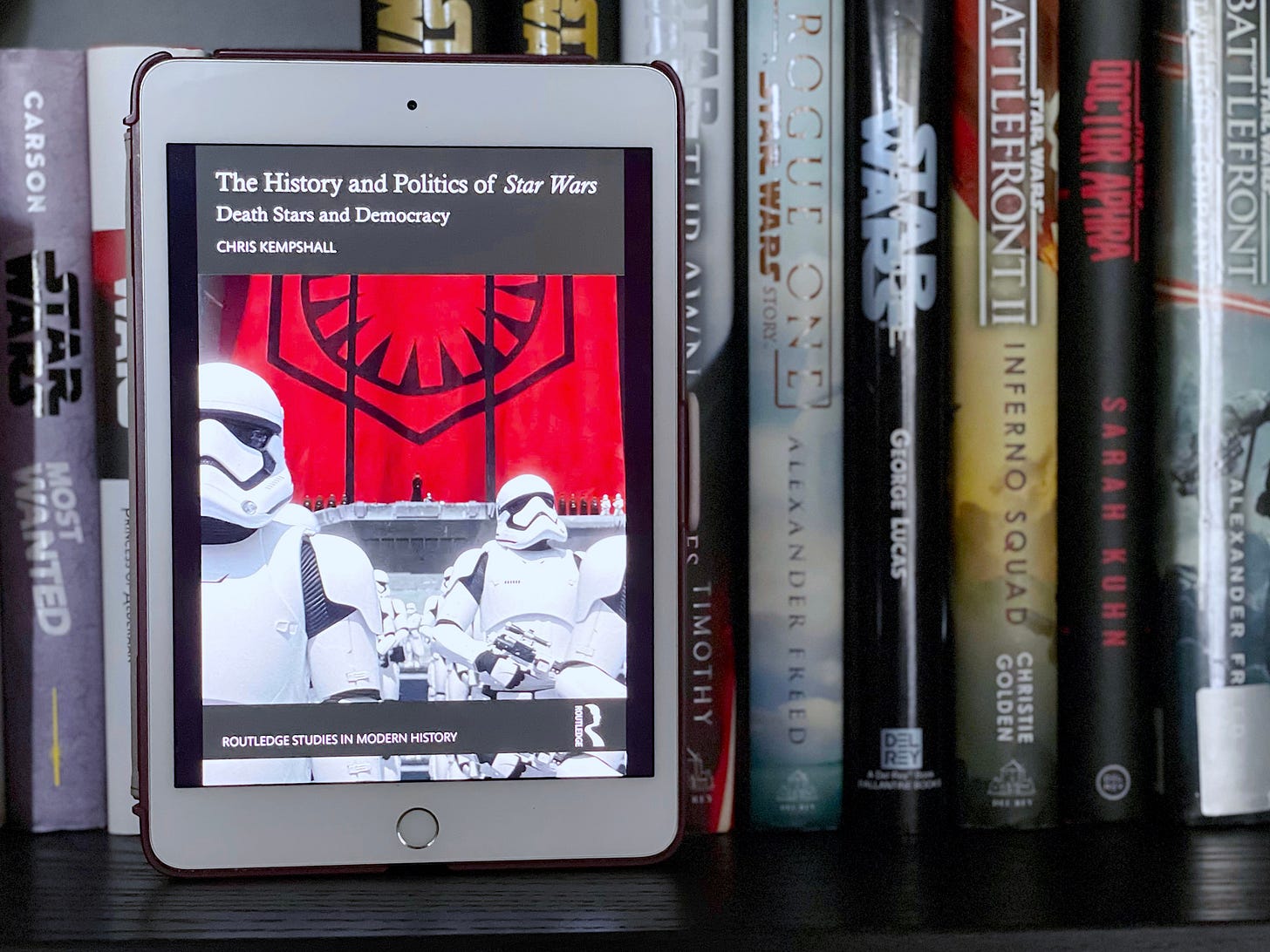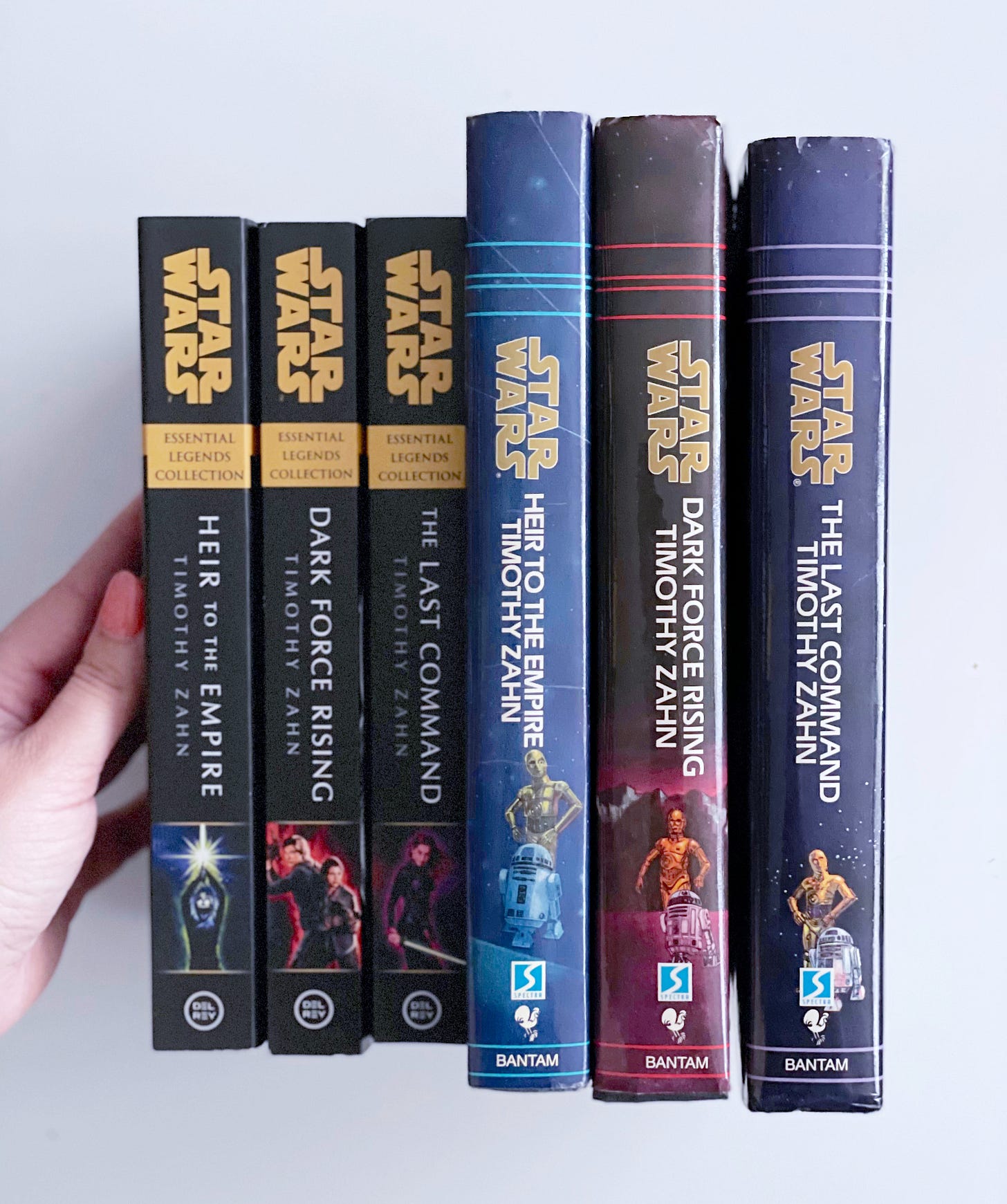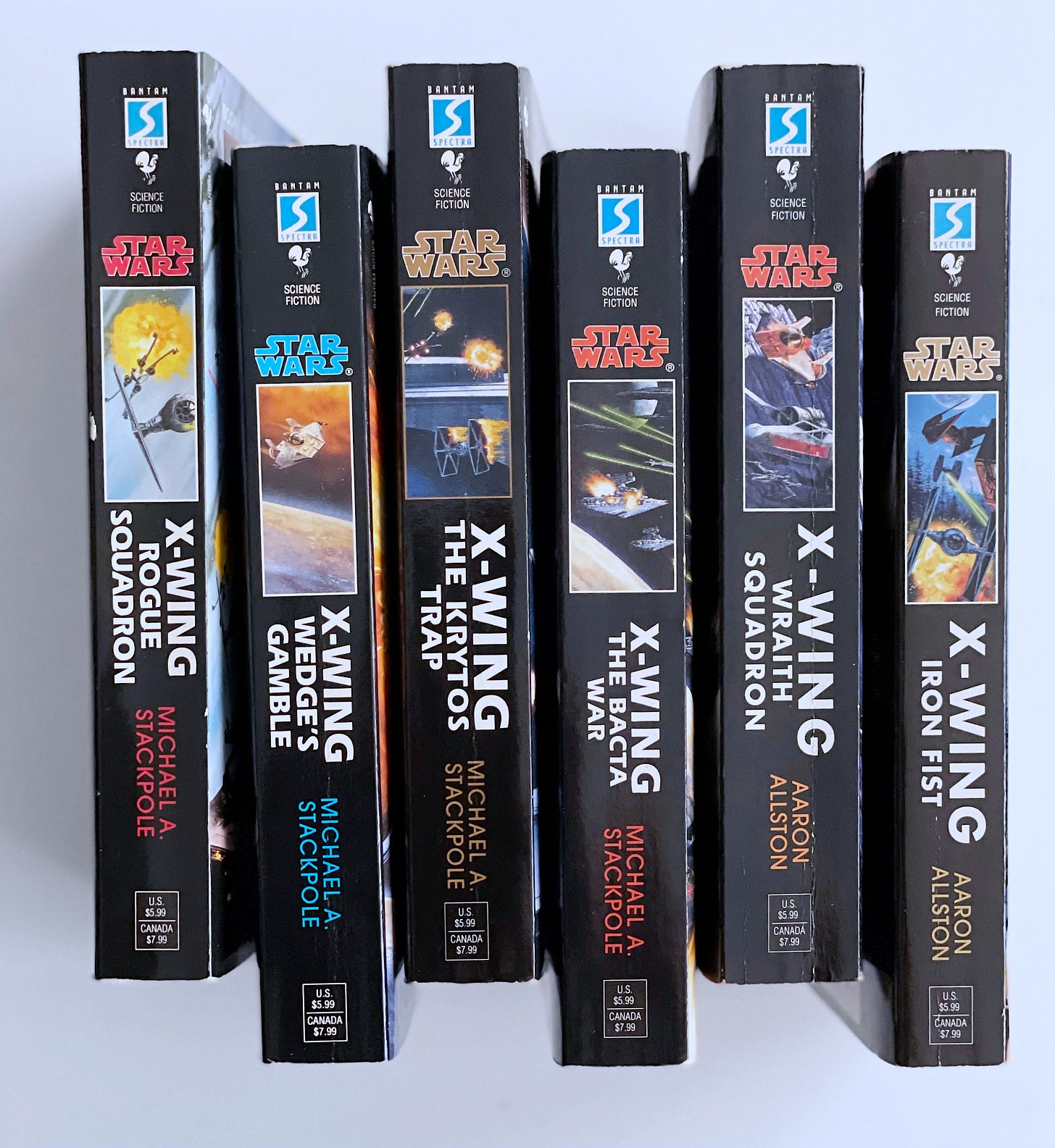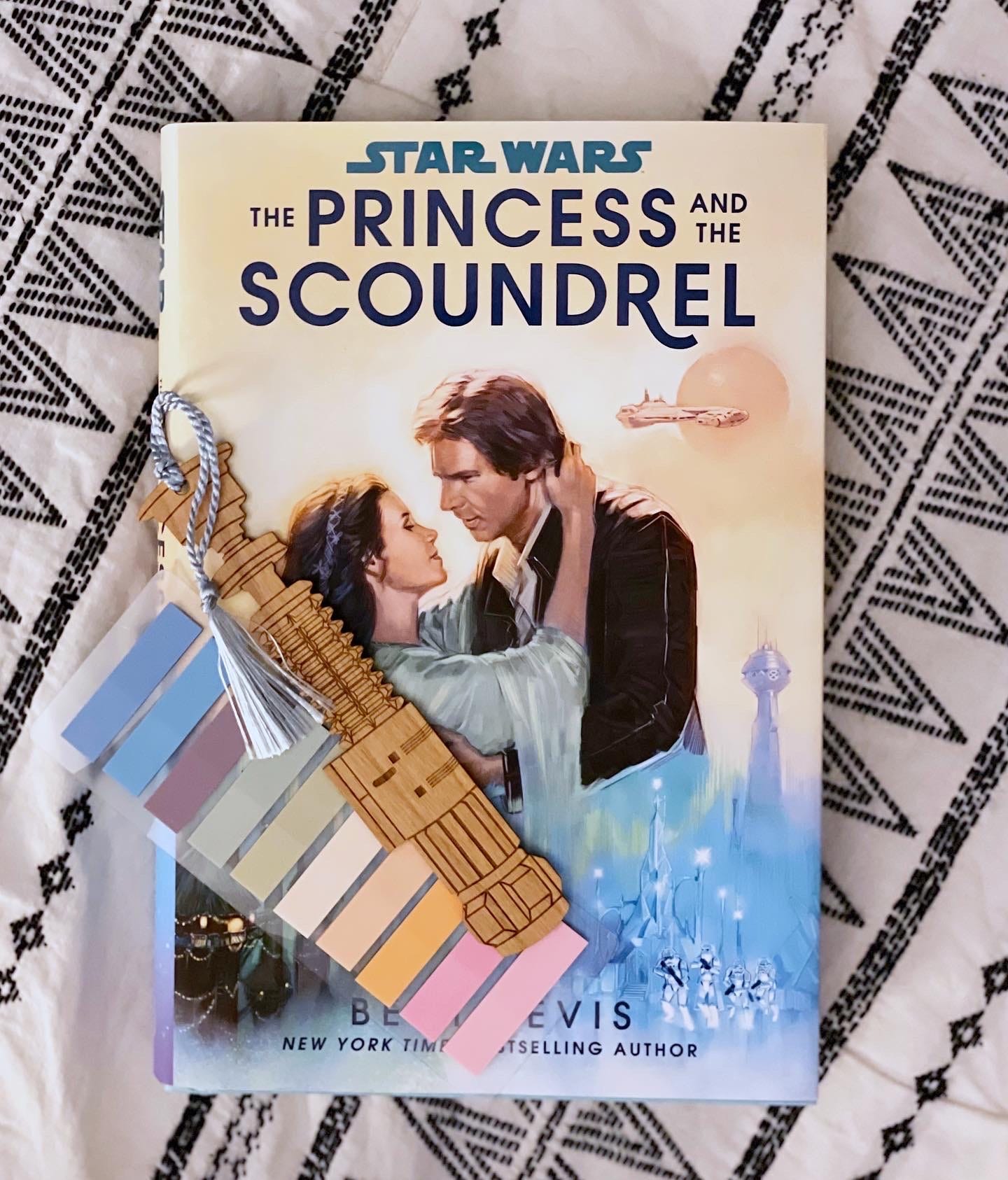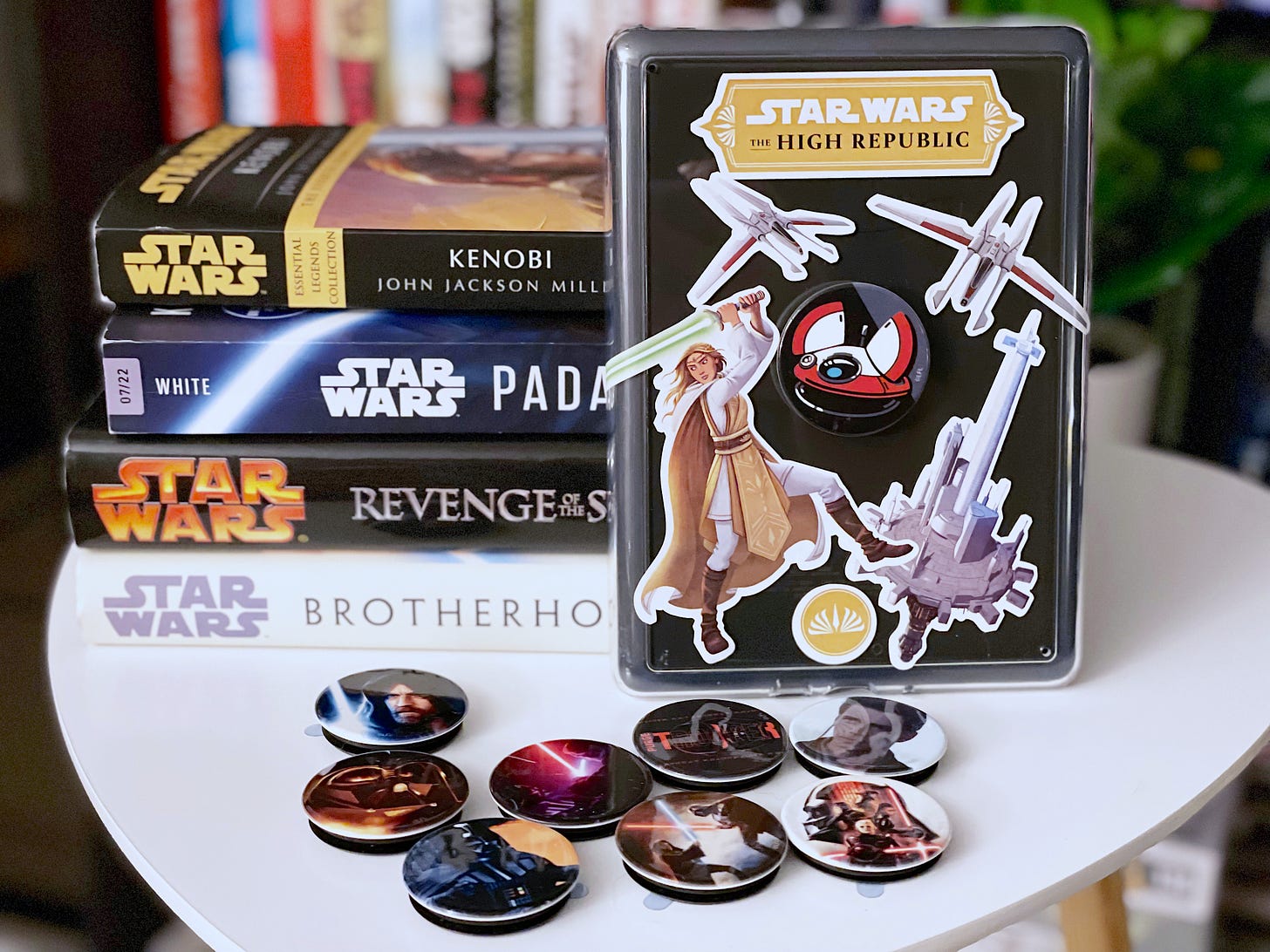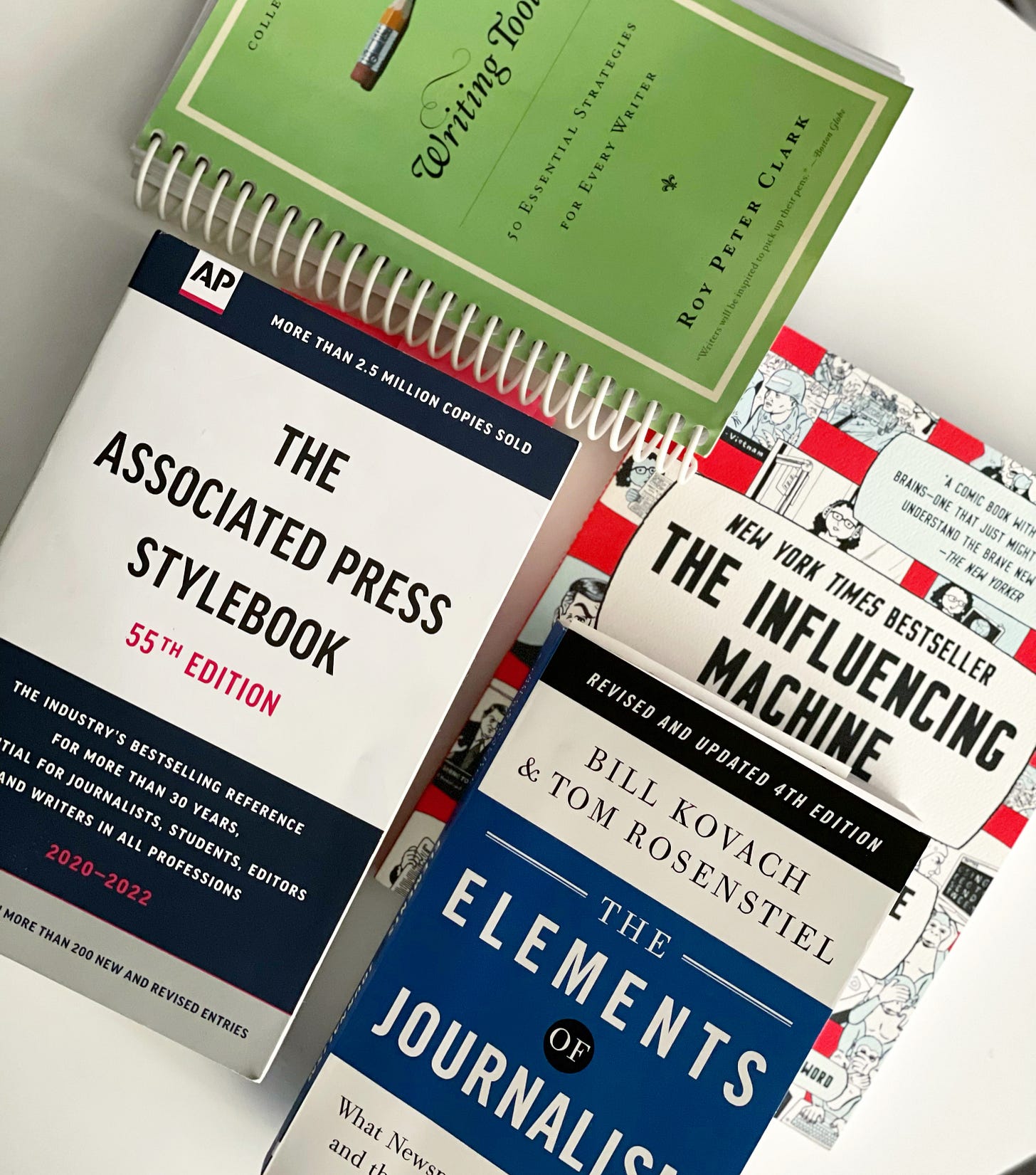SWBC: Book talk with 'The History and Politics of Star Wars' author Chris Kempshall
"When Star Wars is talking to us, what is it trying to say? That’s what I’m hoping the book is providing to people, is an answer to that question."
Q&A: The History and Politics of Star Wars: Death Stars and Democracy
Star Wars is political. It always has been, and it always will be. It doesn’t matter who writes the stories, what characters are included, or where on the timeline it falls.
Star Wars blatantly draws upon our own real-life history, politics, and current events to tell its stories. And along the way, those inspired tales can help us better understand the galaxy we live in.
That’s the focus of historian Chris Kempshall’s new book, The History and Politics of Stars Wars: Death Stars and Democracy. While his work is academic, the book is engaging and accessible to all Star Wars fans and history buffs.
I recently talked to Chris about his book, which arrives on Thursday, Aug. 11. A big chunk of that conversation is for a story I’m working on for Supercluster. But Chris was kind enough to answer a few more questions about his love of Star Wars literature.
*Interview has been edited for length and clarity*
Why should Star Wars fans pick up this book? What is something you hope readers will take away from it?
Most Star Wars stories begin and end with the films — they’re super easy to get a hold of. But what I’ve been trying to do with the book … is show that (the films) aren’t just Star Wars. And to limit your understanding of Star Wars to just the films is to miss out on a huge amount of important detail and nuance that does translate into the films.
If you’re a Star Wars fan — of the books, the games, the comics — this is the first in-depth examination of those materials. If you want to read more about what’s going on in the context of the Expanded Universe, you’re going to get loads of that in the book.
What I’m hoping it’s going to give to Star Wars fans … is that understanding and that acceptance … that Star Wars has always been historical; Star Wars has always been politics, and it’s fine.
It’s ok that that is the case. All we have to actually do is … basically answer the question — when Star Wars is talking to us, what is it trying to say? That’s what I’m hoping the book is providing to people, is an answer to that question.
You mentioned you had a bunch of EU novels and stories knocking around your head. Do you know how many Star Wars books you had to read or reread in your research for this book?
I had to read for the first time all of the new stuff that’s coming out since Disney took over. So, like the Aftermath trilogy, the Princess Leia book called Bloodline, and the new X-Wing squadron books by Alexander Freed. All of the new stuff I had to read and read relatively quickly. But it was coming out faster than I could read it.
Some of the weird stuff I ended up going back and finding was the role-playing game guides and stuff like that; going back to old strategy guides for computer games and the instruction manuals for computer games. That took a while to track down some of that stuff and read it.
But some of that was super fulfilling because … you know you’ve got an idea of what the Empire was like during the 1990s and then you go and find some random manual for a strategy game and it gives you the perfect quote that sums it up.
Do you have a favorite Star Wars book or series?
So, I have multiple answers to this. I really like the X-Wing series a lot as a collection. And I think Michale A. Stackpole gets quoted the most (in the book) because of those books and the comics.
I really like the original Thrawn trilogy that Timothy Zahn did. But actually, in a weird sense, the book that means the most to me, that sticks in my mind is another Timothy Zahn book called Vision of the Future. It was the second part of his Hand of Thrawn duology.
I got Spectre of the Past (at the Virgin Records store at the former Downtown Disney in Orlando, Florida, in the 1990s) … and gobbled it up in like 48 hours.
And then it felt like it took years for the concluding chapter of that duology to come out here in the UK. According to my bibliography, it was only about a year later. When it came it was a massive book that took me a while to read through, but I was so hyped for it. So, it might be Vision of the Future; I do go back to it frequently over the years to reread it.
For the new stuff, I love Alexander Freed’s Alphabet Squadron books. Everyone, including me, was like “it’s going to be another Michael A. Stackpole X-Wing type” — it is not like that.
It is a bleak, depressing view of warfare and it is fascinating.
And I believe at the end of the first book, the droid in it gives the most cutting critique of Palpatine as being just a petty, vengeful, cruel, miserable man, and reading that (thinking), you are clearly talking about Adolf Hitler.
It is a perfect description of a fascist dictator. And to quote Grand Admiral Thrawn, it’s just so artfully done.
It’s a beautiful, really impressively, in-depth, well-conceived criticism of fascism, dressed within the Star Wars universe.
Would you say that your favorite character is Thrawn, or do you have another favorite character?
I like Thrawn a lot. I think Thrawn is a weird one because to an extent, Thrawn doesn’t exist. You have the Thrawn from the original Heir to the Empire trilogy, but he’s been retconned by Zahn himself really heavily by the time you get to Spectre of the Past and Vision of the Future.
There are multiple versions of Thrawn that appear to exist at different times.
I really like Wes Janson as a character and his “bromance” with Hobbie Klivian in the Expanded Universe in the X-Wing novels.
For a favorite character — synonymous with interesting — I think the Emperor I find to be the most interesting and the character I come back to. How fascinating and multifaceted he is.
He’s a really compelling, interesting character. And I find him interesting and compelling partly because in that 1990s Expanded Universe, you only get the shadow of him because it’s all set after his death. You only get this understanding of him after he’s gone.
Who was the Emperor, what was the reality of Imperial rule, and what was it like being around the Emperor? — I find that really interesting.
You mentioned that the book that got you into reading Star Wars was Spectre of the Past, so is that the first book and the one that really got you into reading Star Wars?
Spectre of the Past is the beginning for me … in regards to the Expanded Universe. But I also got cheated about what happened to Thrawn, because he’s already dead when you read Spectre of the Past. So I didn’t even get my Last Command, get stabbed in the back by Rukh moment.
I’m perpetually being spoiled by my choice of chronology.
Well, it’s a good thing we have Thrawn back for now.
That’s true.
And a different Thrawn!
And there’s a pretty big difference between the Thrawn of Rebels and the Thrawn of the books that Timothy Zahn is writing. A fairly pronounced difference. Which is fine, but it ends up being like, there is no single version of Thrawn. He appears to be so multifaceted and multidimensional, which is super good for a character.
What book or series do you recommend for those who want to read more about the in-universe history and politics of Star Wars? Or just books you recommend for anyone who wants to get into reading Star Wars?
I think a good starting point is either that original Thrawn trilogy or to be honest maybe the X-Wing books. Because they fill in a load of blanks after Return of the Jedi — you’ve got core characters, you’ve got some of the major ones dipping in and out.
And you get that starting point as well, particularly with the X-Wing ones of — what I talk about in my book — that evolving 1990s thing that then leads into the War on Terror and you get that post-Soviet thing, which helps make a lot more sense with what comes afterward.
To really dig into the wider EU narrative and the history and politics, you kind of need to answer the question, “well what happens to the Empire after Return of the Jedi?” and that’s what those X-wing books and Heir to the Empire books … effectively do.
They wrap up the war against the Empire, and they do it by drawing on as many real-world historical political examples as they can.
Creator shoutout: Now This Is Lit
My friend/editor Meg Dowell Mondom recently launched a Star Wars book podcast called Now This Is Lit. So far, she’s dropped a spoiler-free review of Padawan and two author interviews, including the newest episode with Chris. Take a listen below and be sure to follow Now This Is Lit wherever you get podcasts and right here on Substack.
Star Wars books and comics out this week
August 10
Han Solo & Chewbacca #5
Bounty Hunters #26
Hyperspace Stories #1
Star Wars Rebels trade paperback*
The History and Politics of Star Wars
In other HoloNet news…
Star Wars released another excerpt (and likely the final one) for The Princess and the Scoundrel.
ICYMI, all the other excerpts:
Luke and Leia talk next steps for their family and the Force
Leia grapples with her relationship with Darth Vader and the Force
NEW: Obi-Wan Kenobi PopSockets
The kind folks over at PopSockets sent me all nine (!) of the new accessories featuring scenes and characters from Disney’s Obi-Wan Kenobi.
The round device grips feature Obi-Wan, Anakin Skywalker, lightsaber duels between Obi-Wan and Darth Vader, a purge trooper, Leia’s L0LA droid, and the show’s poster art. It was hard to pick a favorite, but I went with L0LA for the back of my Kindle.
These PopSocket designs are interchangeable, too! Though since I have nine of them — and I don’t own nine devices to put them on — I’m planning a giveaway, which will likely launch next week. So, be sure to pick out your favorites.
Check out the whole line of Ob-Wan Kenobi PopSockets and other accessories at PopSockets.com.
Current reads and work
The Princess and the Scoundrel (August 16)
Babel (August 16)
(Audiobook) Thrawn
(Audiobook) Darth Maul: Shadow Hunter
Teaching update: The fall semester begins in less than two weeks! I’m chugging away at creating and updating the syllabi for the two classes I’m teaching this semester — Advanced Reporting and Mass Communication and Society.
The former is a class I’ve taught twice already, so I’m just updating the syllabus and materials for a new schedule and batch of students. The latter is a new course for me, but I’m excited to evolve the lessons and lectures into a class focused on history and media literacy in the age of social media, fraught politics, and evolving culture.
Here’s what I’m reading and assigning for those classes:
The Influencing Machine: Brooke Gladstone on the Media by Brooke Gladstone
The Elements of Journalism: What Newspeople Should Know and the Public Should Expect by Bill Kovach and Tom Rosenstiel
Writing Tools: 55 Essential Strategies for Every Writer by Roy Peter Clark
Coming soon to Space Wizards Book Club
Reviews of:
Star Wars Rebels
The Princess and the Scoundrel by Beth Revis
Darth Maul: Shadow Hunter audiobook read by Sam Witwer
Featured posts:
Favorite quotes and notes from Padawan
A guide to the books and comics coming in The High Republic Phase 2


